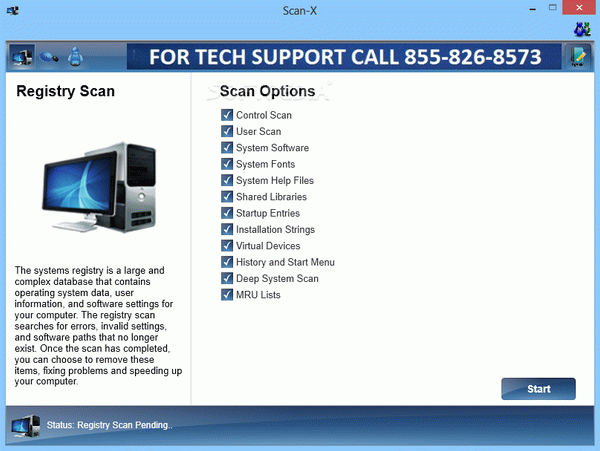Scan-X 1.1.0.0 Activation Code Full Version
Scan-X is a simple to use application that can scan the Windows Registry and the list of most-recently-used entries. The program can detect recently used Registry keys, especially from programs that you uninstalled or erased. Moreover, it allows you to quickly remove unnecessary keys within a few seconds.
Scan-X can perform an in-depth check of the system Registry and find the most recently used entries. The program can filter the hundreds of keys stored in the Windows Registry and display only those that were used in the past few days or weeks.

Download Scan-X Crack
| Software developer |
OMG FAST PC
|
| Grade |
2.9
843
2.9
|
| Downloads count | 6488 |
| File size | < 1 MB |
| Systems | Windows XP, Windows Vista, Windows Vista 64 bit, Windows 7, Windows 7 64 bit, Windows 8, Windows 8 64 bit |
This task can be particularly useful in case you uninstalled certain programs that created Registry keys. It facilitates the access to these keys and displays information that can indicate whether or not the selected keys are critical to the system.
Registry cleaning is not a job that should be taken lightly, especially by users who are not very well acquainted with the process. However, Scan-X offers you additional data regarding each of the keys, such as importance, scan phase and the file or application that created it. You can thus watch the specifications under ‘Value’ and ‘Data’.
The program can also create System Restore Points, snapshots of the current state of your system, before erasing the selected keys. The process can take several minutes, but it constitutes a safety net, a means to recover lost data, in case you accidentally erase a critical key.
Scan-X Serial can erase the Registry keys almost instantly, if you select not to create a System Restore Point. The process is very fast and as a result, it sends you back to the task list. Moreover, it does not prompt a cleaning confirmation screen. The program lists locations that are checked at each scan, such as system software, fonts, help files, startup libraries, virtual devices and MRU lists.
